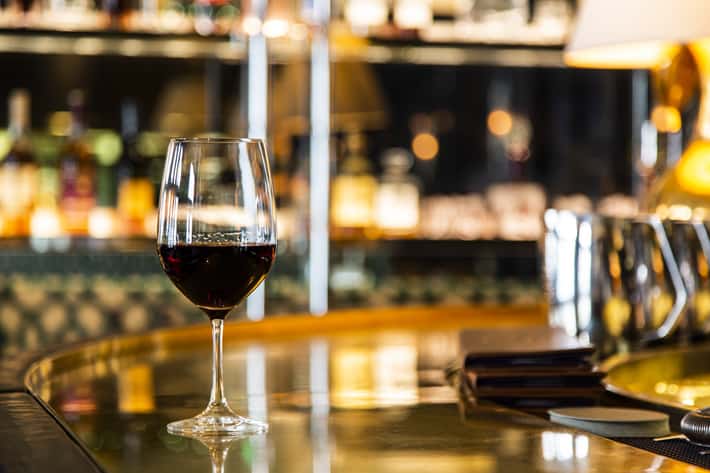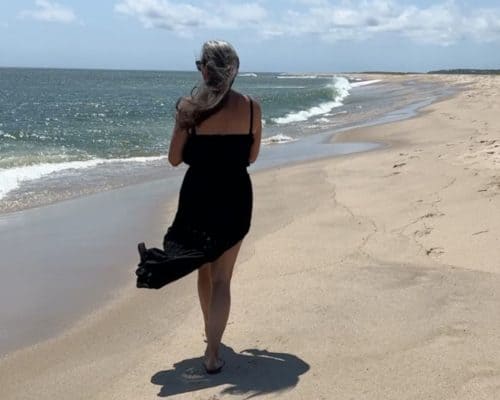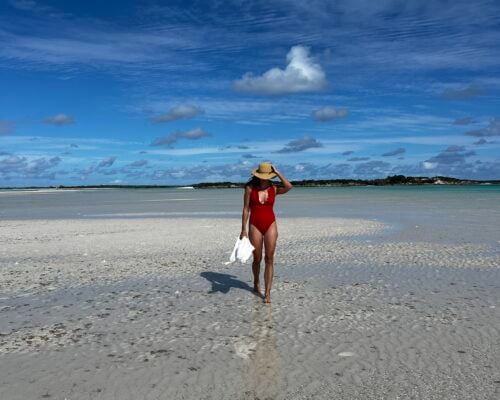Okay so by now you all know, I’m a wine girl. And now that I’ve been in Atlanta for two years, I’ve made my way around town finding my go-tos where I can get a glass of natural wine. Recently I had the opportunity to sit down (via email) with Sam Gamble, “2019’s Best Sommelier of Atlanta” named by the Atlantan Magazine and currently the Sommelier at Atlas located in the St. Regis. I wanted to know more about natural wines, what to look for on a menu, how to order, what makes them different and specifically what Atlas has to offer for clean wine.
First, let me introduce Samuel Gamble. He got his start in hospitality at Sea Island, the Forbes Five Star luxury resort in Southeast Georgia, where he was the Sommelier for their fine-dining restaurant called the Georgian Room. In 2017, Sam’s passion for fine-dining and sharing his knowledge with others lead him to Atlas. Since joining the Atlas team, the wine program has achieved numerous accolades, including the “Best of Award of Excellence” by Wine Spectator and has been featured as one of the best wine programs in the state. Sam offers a wide breadth of knowledge and enthusiasm, and possess numerous certifications through the Court of Master Sommeliers, Society of Wine Educators, and WSET.
For those who may not know, Atlas celebrates seasonal American cuisine combined with European influences. Executive Chef Christopher Grossman has crafted a daily-changing menu that is entirely driven by partnerships with over a dozen local farms including Crystal Organics, Dillwood Farms, Many Fold Farm and more which you can check out here. Guests are invited to revel in a fine dining experience in the dining room or take advantage of The Tavern featuring a chef-driven small plates menu and hand-shaken cocktails. With a focus on curating fresh ingredients from local farms, the chef-driven restaurant brings unparalleled culinary experiences to the capital of the South. Atlas also boasts an acclaimed art installation featuring 30 pieces from esteemed artists including Foujita, Monet, Chagall, Modigliani and Soutine. The restaurant’s impressive gallery of 20th century artwork has been hand-selected from The Lewis Collection, one of the largest private art collections in the world.
For those who may not know, Atlas celebrates seasonal American cuisine combined with European influences. Executive Chef Christopher Grossman has crafted a daily-changing menu that is entirely driven by partnerships with over a dozen local farms including Crystal Organics, Dillwood Farms, Many Fold Farm and more which you can check out here.
Atlas also boasts an acclaimed art installation featuring 30 pieces from esteemed artists including Foujita, Monet, Chagall, Modigliani and Soutine. The restaurant’s impressive gallery of 20th century artwork has been hand-selected from The Lewis Collection, one of the largest private art collections in the world.
If you are like me and like a loungey feel for a drink – this is your place. Sit outdoors in pillow laden teak patio furniture surrounded by greenery or get cozy inside at the bar or lounge. This is where we took my parents for Christmas Eve last year when they were up visiting – I take any excuse to go!
Sam Gamble on the wines at Atlas
Lisa: Does Atlas offer natural wines? (Grapes grown without pesticides, little to no forced irrigation, no additives like fining agents, deformers or added sugars or colorants like mega purple).
Sam: Atlas offers a wide variety of grapes and styles from across the world. It has always been a priority to represent wineries that focus on longevity, purity, and expression. We strive to represent a wide selection of producers that carry certified organic, bio-dynamic, or sustainable farming certifications. Natural wine is a hot topic in the Sommelier community, and keeping our wine list constantly updated with selections that attract all forms of conversation is what separates our wine list from other restaurants. We do carry more then one producer of natural wine, and at more than one price point. If you want a unique introduction to natural Slovenian wine, we carry a three-vintage vertical of Movia, Ribolla Gialla. If you have a craving for high-quality natural wine, we carry Paolo Bea from Umbria, Italy.
Lisa: Can you point us to 5 options we can order by the glass at Atlas and tell us a little about each one? Where they are from and why they are natural? For example, most wines grown in the Loire Valley of France are clean because the climate lends itself to growing grapes and the fruit does not need chemical support to thrive. Plus, there are a lot of old world wine making families who ferment naturally with non-GMO yeasts and no additives.
Sam: The wine list at Atlas is constantly changing and developing. We rotate our by the glass list on a consistent basis, constantly improving our theme on diversity. We focus on traditional vs. modern representations on grape varieties, elevation levels, and climates. Cantina Mesa is represented by the glass, and is a great introduction to natural wine. We carry a Vermentino by Mesa, which lends itself to be crisp with fresh green apple notes and pepper. Cantina Mesa also produces a Grenache under the name Cannonau that we also carry. Loads of berries, hibiscus, and a powerful juicy core. Both these wines are produced from the island of Sardinia, Italy.
Lisa: Can you tell us about your Champagnes or sparkling wines? Do you have any that are made “Methode Ancestrale Method”? Can you tell us more about that? I know that is one of the hardest wines to source clean. Do you have any natural Champagnes?
Sam: Our Champagne selection is vast, with a big focus on small houses that are known for quality. While all varieties of Champagne / sparkling are represented on the menu, we do not carry any Ancestrale production. These are usually hard to source, and tend to provide a cloudy appearance in the bottle and glass. Methode Ancestrale is the process in which the second fermentation is allowed to take place in the bottle, without the new addition of sugar and yeast. This is what makes this process different then classic method Champagne production.
Lisa: What is your favorite wine Atlas is pouring right now? And can you tell us about it?
Sam: Personally, my favorite wine is the La Rioja Alta, Viña Ardanza, Rioja 2000. It’s not a natural wine, but the complexity, aromatics, and history make it a true gem! The house was founded in 1890, and was one of the first to produce quality wine in the region. Majority Tempranillo, and aged for 36 months, in four year old American oak barrels. The style of wine is light-bodied, with a high aromatic intensity of sweet and sour cherries, dried rose pedals, and cedar wood. This label has only seen two releases, one in 2007 and one in late 2017. Atlas is not only one of a few restaurants that carry this by the bottle, but you can also enjoy it as glass option or tasting pour.
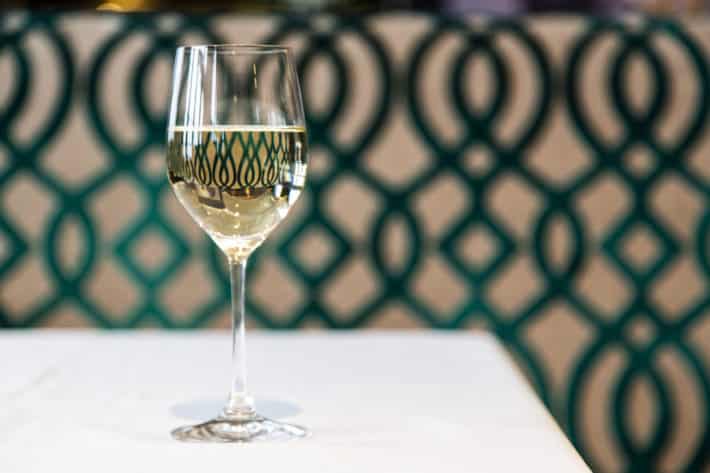
Lisa: What is the best value (per glass or bottle) for a natural wine at Atlas right now?
Sam: The best value on our wine list is the Borgo San Daniele, Arbis Blanc for $84 a bottle. This is a white blend featuring Chardonnay, Pinot Bianco, Sauvignon Blanc, and Fruilano all sourced from Collio, Italy. This is one of the leading faces of bio-dynamic production in Italy, and is a white wine that provides so much flexibility with food. The perfect balance between creamy and mineral focused.
Lisa: Are there any certifications we can rely on as consumers of natural wines to ensure we are choosing clean?
Sam: There are no certifications that regulate the term, “natural wine”, but there are unofficial associations that reference producers, such as: RAW WINE, Vini Veri, and L’Association des Vins Naturels.
Lisa: Can you give us any tips as patrons who value natural wine? How can we ensure we are getting clean wine when we go out to eat in general? Any ordering tips? Countries/regions to order from and countries/regions to stay away from?
Sam: My best advice would be to not only limit yourself to enjoying “natural wine”, but to also speak with your Sommelier about certified organic and bio-dynamic friendly producers. There is a high probability that an average restaurant will carry producers with those certifications, then producers that are self-proclaimed natural. Certified organic and bio-dynamic certifications do exist, while natural certifications do not. This allows for better consumer guarantee, and the guest knows what to expect. Producers with this labeling also limit the use of sulfites, insecticides, and additives.
Lisa: Are all wines vegan? How can we know if a wine is vegan?
Sam: Natural wine is about no additives. If you are looking for a vegan wine, I think your best option would be a natural wine. You will never see albumen, or egg white in a natural wine, so that would match the best.
Lisa: Wines that are bottled in France and sold in France for example – when they are exported to the US, are they the exact same or is anything added to them for export?
Sam: The wines are exactly the same. Additives like sulfites are added at the winery, prior to labeling.
Lisa: And because it seems to remain the 8th wonder of the world, what are sulfites? What are the concerns around sulfites? And is it possible to buy a sulfite-free wine?
Sam: Sulfites, also known as SO2, are used as a natural preservative for wine, and are a great way to maintain flavor throughout the aging process. Sulfites tend to get a bad reputation due to the small percentage of people that have allergic reactions when ingesting, but sulfites are a needed additive to help a wine survive through the years. Sulfite-free wine does exist, but these types of wine are not meant for long term aging. Drink quickly!
Check out Atlas’ menu here!
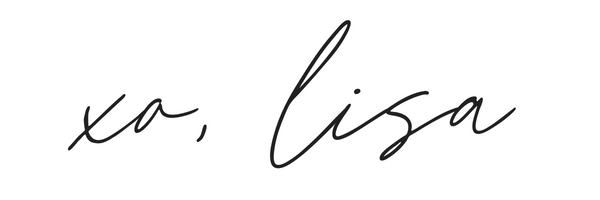
P.S. More on natural wine here!

